HVAC Allergies: How To Get Rid Of Pollen From Your Home This Spring
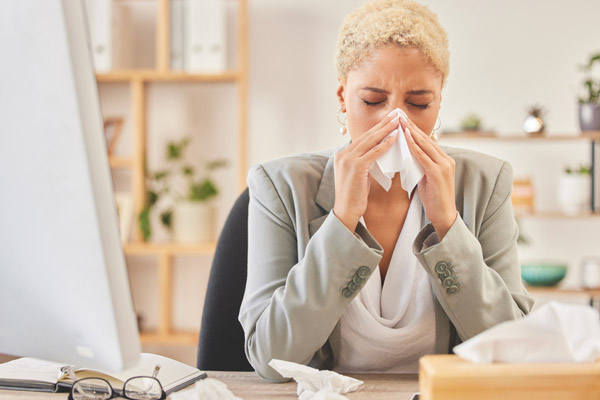
Countless Americans grapple with allergies annually, with varying degrees of severity influenced by their sensitivity and surrounding environment. If this resonates with your situation, it’s time to consider transforming your living space into a haven of comfort. Enduring discomfort isn’t necessary. Directly confronting this challenge is feasible by altering daily routines and harnessing the power of technology, including your HVAC system. Taking the initiative can significantly ease your experience during allergy season. Conversely, inaction can lead to your HVAC system exacerbating the problem (HVAC allergies). Continue reading to discover how your HVAC system can be a formidable ally in your battle against seasonal allergies.
Steps That Can Help You Reduce Your Seasonal Allergies This Year
Contents
This article explains the steps you can take to make your HVAC system a key player in your health and wellness.
Replace Your HVAC Filters
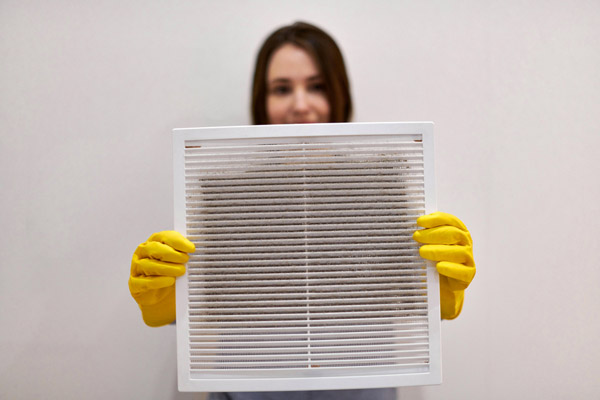
Our environment is laden with microscopic particles that can be potent triggers for allergies and respiratory problems. Although invisible to the eye, these particles can sometimes be spotted when they catch the light through windows. Your heating and cooling systems come equipped with filters designed to capture these dust and dirt particles from circulating air. These filters help in reducing allergy symptoms while protecting the system itself. Regular replacement of HVAC filters, as advised by manufacturers, is crucial. Neglecting this can obstruct airflow, diminishing the system’s efficiency and potentially shortening its lifespan. Aim to change your air filters every one to three months, tailored to the level of dirt accumulation in your home.
Maintain Clean Surfaces
Allergens that infiltrate your home won’t remain airborne indefinitely. Eventually, they settle on surfaces such as floors, desks, beds, and other areas. It’s crucial to regularly clean these surfaces, especially in your bedroom. Avoid using tools like feather dusters or brooms, as they tend to redistribute the particles into the air. Instead, opt for a high-powered vacuum cleaner that effectively removes dust, dirt, and pollen. Use a damp, clean rag if a vacuum cleaner is unavailable. Moisten it with water, wring out the excess, and use it for wiping surfaces, ensuring that dirt adheres to it immediately. Additionally, washing your bedding weekly or as frequently as possible is beneficial to reduce allergen buildup.
Switch to HEPA HVAC Filters
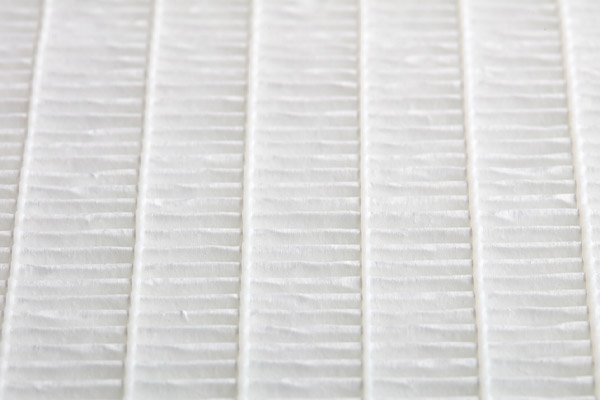
Typical HVAC systems have standard air filters primarily designed to trap larger particles. Due to their broader mesh design, these basic filters fail to capture finer allergens like pollen. This limitation stems from the manufacturer’s primary goal of safeguarding the equipment against airborne materials that could harm the system rather than filtering out smaller particles that may cause health problems for users.
Consider upgrading to HEPA filters to significantly enhance air quality and reduce allergy triggers in your home. These have a finer mesh that can capture a wide range of allergens, offering you a safer and healthier indoor environment. However, the denser mesh of HEPA filters can impact airflow, so your HVAC system may require certain adjustments to function optimally with these filters. Consult with an HVAC professional to determine the most suitable options for your specific system.
Regularly Run Your HVAC System
Just as stagnant water poses various risks, like becoming a breeding ground for insects and a hotspot for bacteria growth, stagnant air in the home can be equally problematic. When indoor air remains still, it becomes a trap for pollutants. These contaminants accumulate over time, potentially reaching levels that are detrimental to health.
A practical strategy for boosting ventilation in your home involves periodically running your air conditioning system, even when it doesn’t seem necessary. This approach facilitates air movement as the system draws fresh outdoor air and expels stale indoor air. For optimal results, engaging your AC for at least 20 minutes daily is recommended.
Install UV Light for Sanitation
Ultraviolet (UV) light is widely recognized for its disinfecting properties. Sun-drying clothes harnesses heat to speed up evaporation and UV light to eliminate bacteria, resulting in fresher-smelling garments. On a molecular level, UV light can neutralize pathogens, which is why it’s also utilized in water treatment processes. Integrating smaller UV light devices into HVAC systems can effectively destroy allergens and pathogens that may accumulate within the system. This prevents the distribution of contaminated air throughout your home and significantly enhances indoor air quality.
Ensure Proper Sealing of Walls and Windows
Merely shutting doors and windows might not suffice to keep pollen at bay. Many homes have small cracks or gaps around doors and windows that permit unfiltered air entry. It’s advisable to inspect your residence for such openings. If detected, these gaps can be effectively sealed using caulk, weather stripping, or spray foam, thereby blocking the unwanted airflow. Additionally, keep windows closed, particularly during early morning hours when pollen levels are at their peak.
Utilize a Whole-House Humidifier
Monitoring your home’s humidity levels is crucial in understanding your unique environmental conditions. The ideal indoor humidity should hover around 40%. When the air becomes too dry, allergens tend to linger longer, increasing the risk of triggering allergic reactions in sensitive individuals. Conversely, excessive humidity can escalate issues like mold and mildew growth. To maintain an optimal balance, consider using a whole-house humidifier or dehumidifier, depending on your specific needs, to ensure a comfortable and healthy indoor atmosphere.
Schedule Annual HVAC Maintenance
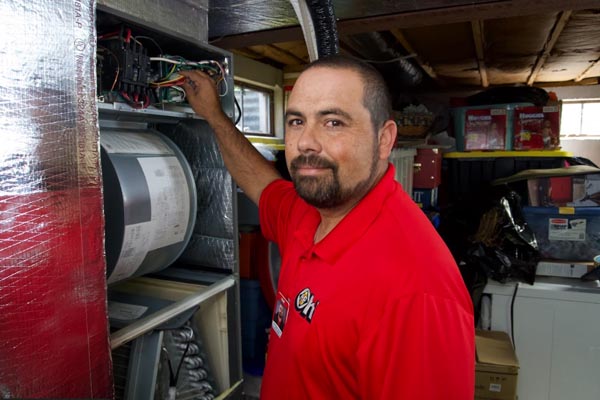
Addressing allergies effectively often requires professional assistance. For severe allergic reactions, it’s essential to seek medical advice. Additionally, improving your home’s indoor air quality can be significantly aided by consulting HVAC specialists. Emphasize the importance of annual HVAC cleaning and maintenance. These steps are pivotal in ensuring easier breathing, a healthier indoor environment, and enhancing your HVAC system’s efficiency and reliability.
Conclusion
Allergies often intensify as spring unfolds, with pollen and various allergens becoming prevalent. To ensure your home remains a safe space, it’s essential to keep windows closed, maintain cleanliness, and utilize your HVAC system as a vital tool for air filtration. For specialized tasks such as HEPA filter replacement, UV light installation, and routine maintenance, don’t hesitate to enlist the expertise of HVAC technicians. Their role is crucial in helping you stay comfortable and healthy by significantly improving the indoor air quality of your home.
Contact R.F. Ohl for Comprehensive HVAC Services
R.F. Ohl is a leading heating and cooling solution provider across Northeastern Pennsylvania. Our team comprises highly qualified technicians with professional certifications and extensive experience in delivering top-notch HVAC tune-ups, repairs, installations, and replacements. Our experts are well-versed in handling your HVAC system with precision and care.
We pride ourselves on having the region’s most competitive prices for heating and cooling services. Our maintenance services can assist in enhancing comfort, boosting energy efficiency, and reducing heating and cooling expenses. Should you require HVAC repair or are considering a system replacement, we are here to recommend the most suitable solutions per your needs and budget. We are committed to delivering satisfactory services backed by a comprehensive guarantee. Contact R.F. Ohl today to arrange a service appointment and receive a complimentary, in-home estimate.
Click here to contact us today or give us a call at (610) 377-1098 if you have any questions. Click the link to view our service area.
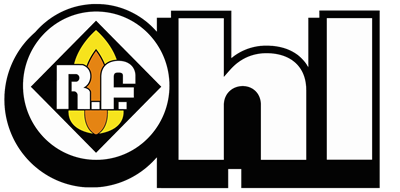
Related Articles: